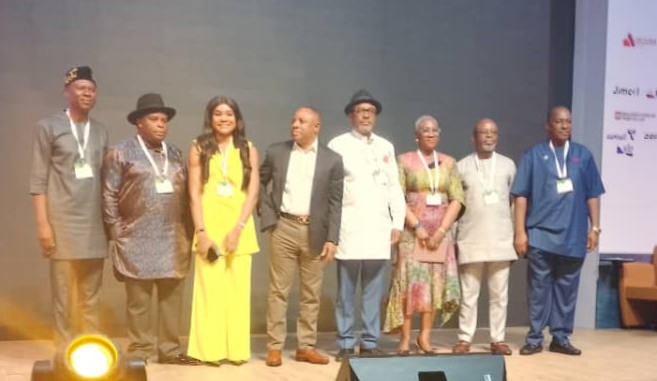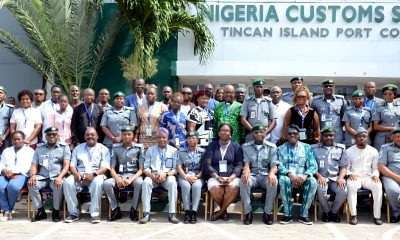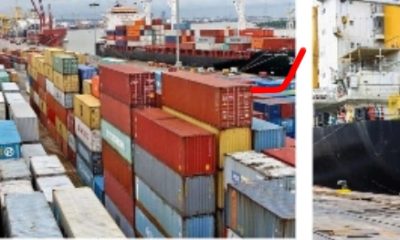By Ambrose Nnaji
The Nigerian Content Development Monitoring Board (NCDMB), has been urged to review certain aspects of legislation that may potentially work against the competitiveness of Nigeria’s oil and gas sector in the global marketplace.
This include the Human Capital Development training requirements wherein industry participants are required to set aside 3percent of project cost (projects above $1million) to conduct local content training.
Meanwhile, it’s recommended that ways be sought to modify local content requirements to ensure that the industry remains globally competitive and sustainable.
The Chairman, Independent Petroleum Producers Group (IPPG), Abdulrazaq Isa who made this call at the ongoing 12th Practical Nigerian Content Forum with the theme: Deepening Nigerian Content amidst Divestments, Domestication and Decarbonisation, in Bayelsa admitted it’s undoubtedly a laudable initiative noted it amounts to a multiplication of levies as industry participants are already equally required to contribute a separate 1percent of total costs as Nigerian Content Development (NCD) levy.
This, he said invariably leads to higher project costs especially as the training is not allowed to be provided directly to company staff and service providers.
According to him, due to this and other contractual or administrative reasons, the process of complying with local content requirements has, on many occasions, proven to significantly increase the overall cost of delivering projects in Nigeria.
Again, this unintended outcome requires some detailed review in order to ensure that we are not losing new investments to emerging investment destinations in the process of driving our local content agenda.
“Most critically, because of the strict local content requirements, we have gradually
seen a reduction in the presence of leading international oil and gas service
providers many of whom are leaving Nigeria in droves.
Unfortunately, while we continue to prioritise local content development, we must recognize that these international players have a key role to play in ensuring technology transfer and
knowledge sharing that our local players can benefit from”.
While recognising government’s effort in deepening local content in the Nigerian oil and gas industry is paying dividends, the chairman noted it is imperative that this effort is sustained with greater focus placed on bridging inherent capacity gaps; addressing infrastructural inadequacy and capital deficiency plaguing the industry at the moment in order to optimally derive the full benefits of the local content policy.
It must also be mindful of ensuring that the local content policies are constantly evaluated to ensure that they are continually fit for purpose and not counterproductive to long term industry growth and cost targets, Isa stated adding the industry continues to face growing pressures to remain profitable and cost-efficient as it faces competition from other
investment destinations.
Isa insisted local players still lack the requisite skills to adequately support the deep offshore operations and other specialised operations.
He acknowledged the Practical Nigerian Content (PNC) has provided a viable platform for demonstrating the successes recorded in deepening Nigerian Content and fostering industrywide collaboration in delivering the key tenets of the Nigerian Oil and Gas Industry Content Development Act (NOGICD Act).
While commending the Nigerian Content Development and Monitoring Board under the able leadership of Engr. Simbi Wabote, Isa noted the forum will always be a special one for IPPG as an association of twenty nine indigenous Exploration and Production companies, adding there is a natural synergy between the NCDMB and IPPG.
He also commended the NCDMB doe remaining on track to meet, or even exceed, the 70percent Nigerian Content target as articulated in its 10-
Year Strategic Road map by 2027 adding the boarsd’s commercial ventures partnership programme will continue to stimulate
investment and promote in-country capacity.
According to him, the emergence of IPPG and strong indigenous Exploration and Production companies is a testament to the successful local content policy.
“It’s clear that our industry is witnessing a
transformational shift and thus continues to underscore the importance of repositioning our industry in the short to medium term.
The ongoing global energy transition drive as well as the widespread reforms across the domestic landscape notably the implementation of the Petroleum Industry Act, the ongoing
divestment of onshore and shallow water assets by the IOCs and the Decade of
Gas Initiative-means exciting times are on the horizon for the industry bringing with it immense opportunities for growth”, Isa expressed.
“As an industry we must remain focused on rapidly and efficiently exploiting our vast hydrocarbon assets for the socioeconomic transformation of the nation.
It is therefore imperative for the industry to be efficient and look inwards in fully optimising these hydrocarbon assets for today and future generations”, he continued adding the faithful implementation of the NOGICD Act is capable of unlocking the nation’s economic potential and serving as an enabler for rapid industrialisation.
He agreed the acceleration of in-country capacity utilisation, reduction of capital flight and in-country retention of a significant portion of industry spend will no doubt continue to expand the participation of the indigenous companies across the industry value chain and create linkages to the wider economy.


 Crime1 year ago
Crime1 year ago
 Business5 years ago
Business5 years ago
 News6 years ago
News6 years ago
 Crime2 years ago
Crime2 years ago
 News2 years ago
News2 years ago
 News6 years ago
News6 years ago

















